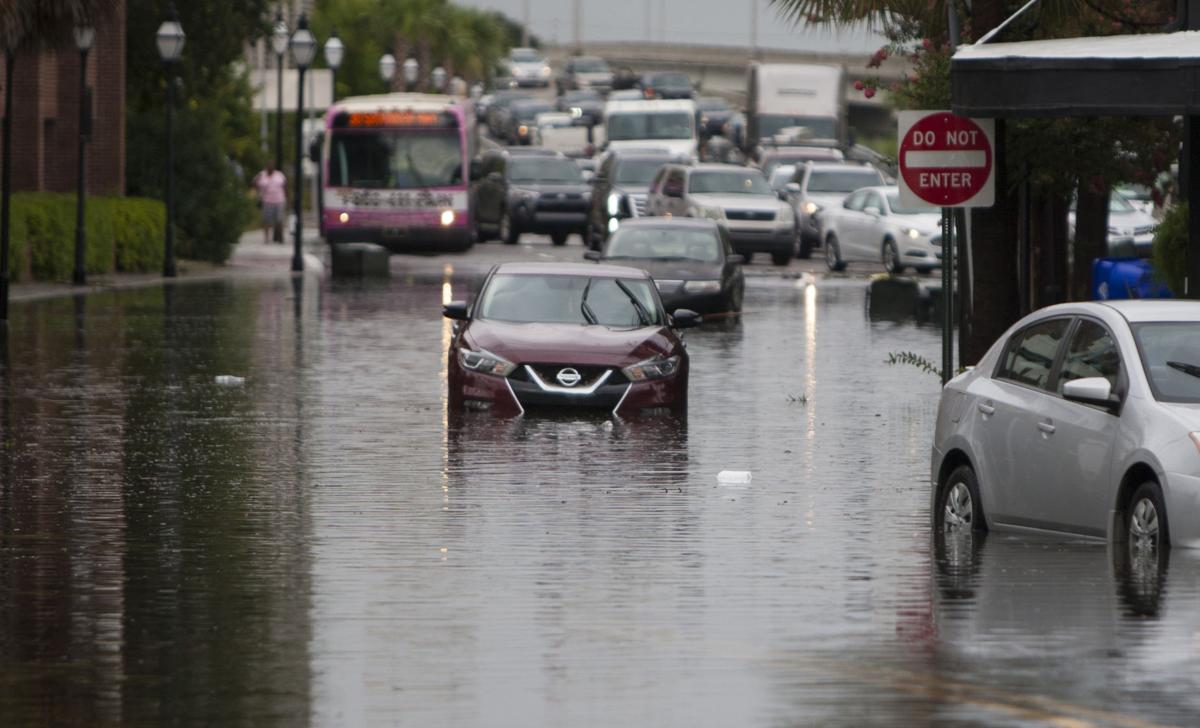Commentary: Flooding crisis a threat to Charleston’s survival and not enough is being done

Flooding has reached a crisis point in the Charleston region. This is true not only on the historic peninsula, but also in West Ashley, Mount Pleasant, North Charleston, James and Johns islands and unincorporated parts of the county. Chronic and worsening flooding affects residents across economic and racial lines — rich and poor, black and white, owners and renters alike.
Flooding is an existential threat to the survival of the city. Public infrastructure valued in the billions of dollars is at risk.
Private property in the form of homes and businesses, also valued in the billions, will be substantially compromised or destroyed without bold, swift action.
According to a recent review by the Union of Concerned Scientists, more than 20,000 homes in Charleston County, valued in excess of $4.5 billion, are at risk of severe damage or destruction from flooding over the next 30 years — jeopardizing more than $39 million in tax revenue. Despite this unparalleled risk, too little is being done.
The city of Charleston is promoting the idea that taking one-third of the accommodations and hospitality tax can address the problem. Nothing could be further from the truth. The amount of money available, even if all of it is allocated to flooding, is barely a drop in the bucket toward the more than $2 billion cost of the most important flood abatement projects.
In addition, the accommodations and hospitality tax revenues fund more than two dozen arts and historic preservation groups, many of which have limited capacity to replace the funds.
The city maintains that state legislative action is necessary to use these revenue streams.
But accommodations and hospitality tax dollars qualify for flood abatement, even without state legislative action. Who could argue that a functional transportation system is not integral to tourism in Charleston?
If the city were simultaneously pursuing other funding sources, considering the accommodations and hospitality tax might be less harmful.
But this source is the only specific proposal on the table.
We now have wasted at least a year asking the S.C. Legislature for permission to do something we already have the right to do and debating a tactic that will not come close to solving the problem, all the while ignoring real solutions.
At the moment, it is indisputable that the only two readily available, consequential sources of funds to deal with flooding are the Charleston County half-cent sales tax and funding from the state transportation infrastructure bank.
Obtaining funds from the half-cent sales tax simply requires the city to express to the county that flooding is its No. 1 priority. The city has failed to do this.
Similarly, the city has failed to submit an application to the infrastructure bank to obtain state funding. This leaves both of these sources of relief untapped and potentially slipping away because of lack of action.
Once the city, county and state make real and substantial commitments to address flooding, we can approach the federal government with a greater likelihood of success. It would be a great mistake to assume that the federal government will provide the sole or primary source of funding for flood relief in our region.
There is no time to waste. Our political leaders must move expeditiously and comprehensively to confront the flooding crisis. We cannot afford to go down any more funding rabbit holes.
We have already lost ground, literally, because of the diversion over the accommodations and hospitality tax.
Now is the time for meaningful action.
Hugh C. Lane Jr. is chairman of the board of the Bank of South Carolina.
